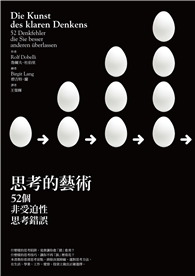Sharpe examines Hannah Arendt’s Eichmann in Jerusalem as a case study of Arendt’s theoretical work on judgment. In addition, he seeks to illustrate two dimensions of judgment: modesty--who am I to judge? and arrogance--how dare you judge me? He demonstrates the extent to which modesty and arrogance are linked with distance. The claims who am I to judge? and how dare you judge me? become questions of how much distance--in time, space, and imagination--is necessary or appropriate for judgment. Sharpe sees Eichmann as an unintentionally ironic demonstration of this feature of human interaction.
Through his careful examination of Arendt’s portrait of Adolf Eichmann and the Jewish Central Councils as well as by considering Eichmann in the context of Arendt’s other work, Sharpe gives us a book that will be of great interest to scholars, students, and other researchers involved with contemporary political theory and Holocaust Studies.| FindBook |
|
有 37 項符合
Eichmann的圖書,這是第 4 頁 |
 |
$ 5700 | Modesty and Arrogance in Judgment: Hannah Arendt’s Eichmann in Jerusalem
作者:Sharpe 出版社:Praeger 出版日期:1999-05-30 語言:英文 規格:精裝 / 192頁 / 24.4 x 16.3 x 2 cm / 普通級/ 初版  看圖書介紹 看圖書介紹
|
|
|
圖書介紹 - 資料來源:博客來 評分:
圖書名稱:Modesty and Arrogance in Judgment: Hannah Arendt’s Eichmann in Jerusalem
|











